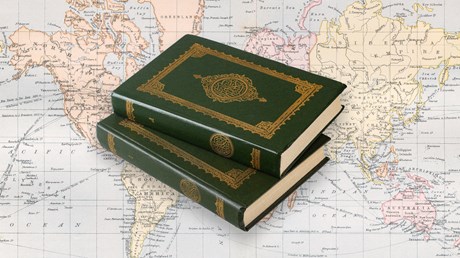Five scholars from around the world offer their best recommendations for learning about the global faith.

The world’s second-largest religion, Islam has long exercised the minds of Christians. Dating to A.D. 610, when Muhammad is said to have received his first revelations from God, the faith quickly conquered Christian lands in the Middle East, North Africa, and Europe, establishing the two faiths on an adversarial basis that has continued through eras of caliphates, crusades, and colonization.
Muhammad originally viewed his communications with God as a continuation of the message received through the biblical tradition, calling Jews and Christians “People of the Book.” But though the treatment of non-Muslims cycled through periods of peace and persecution, the teaching of the Quran ensured theological distinction. Islam esteems Jesus only as a human prophet and denies his crucifixion.
Yet there is much that unites Christians and Muslims. The five pillars of Islam espouse monotheism, prayer, fasting, almsgiving, and pilgrimage. Certain expressions desire mystical communion with God, while others pursue pietistic fidelity to his law. Both religions seek to spread the faith and care for society, anticipating the judgment to come. And while adherents to each faith debate the place of militancy, history clearly testifies to the blood shed in the name of God.
While Islam has not experienced the same levels of schism as Christianity, Muslims debate within—and divide asunder—what they call the umma, the worldwide community of Islam.
Muslim diversity is also cultural. Though Islam was birthed in present-day Saudi Arabia and is generally associated with the Arab Middle East, the most populous Muslim nation is Indonesia, and its greatest rate of growth is in Africa. Nearly 50 nations boast Muslim majorities, ...
from Christianity Today Magazine https://ift.tt/jfhUcpy
No comments:
Post a Comment